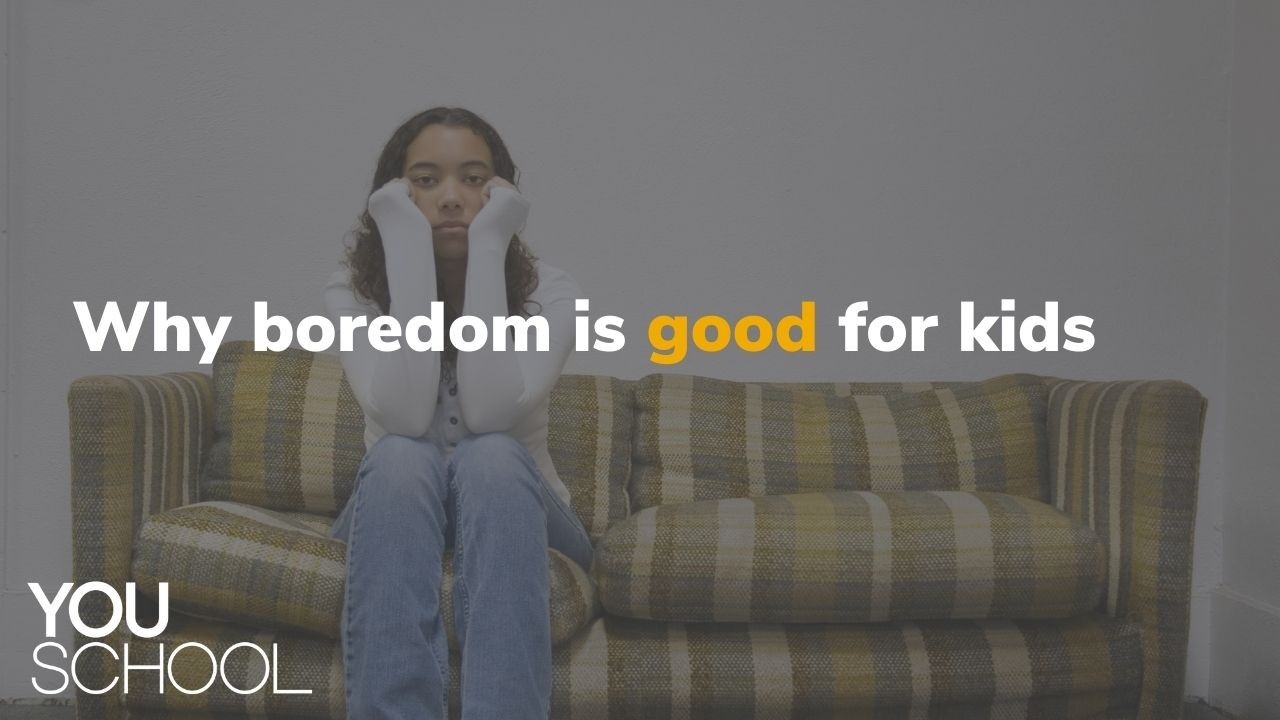Why boredom is good for kids

Feeling bored is uncomfortable. As a kid recently told me, "boring sucks!" No one likes feeling bored; most people do whatever they can to avoid it. One of the worst complaints parents and teachers hear from kids is when they moan, "I'm bored..." As my grandma would always say: "Only boring people get bored. Deal with it."
We live in an age where the opportunities to distract ourselves from uncomfortable feelings are limitless. From Netflix to Instagram to the Food Channel, if we want to tune out the noise of our discomfort, we can.
But the question is, does boredom serve a purpose in our lives?
Researchers in recent years have taken a keen interest in boredom. What it is, what it leads to, and how to make sense of it. It turns out, that people feeling bored do worse in school, drive more erratically, and are way more likely to experiment with harmful substances. On top of being uncomfortable, unresolved boredom can have a devastating impact on someone's life.
Boredom is also an incredible business opportunity—technology companies want to position themselves to resolve boredom for you by giving you stimulants that end up having addictive effects on your attention.
On the flipside, boredom isn't all bad. Boredom makes you more creative, altruistic, and introspective and helps with future goal-setting and life planning. When you find yourself in the discomfort of boredom, oftentimes our minds wander in search for something that will stimulate you or bring meaning to your current state.
In a 2011 study by researchers at UCSB and the Department for Social Neuroscience, they discovered that most people spend their mind-wandering minutes projecting themselves into their own future and imagining different scenarios and possibilities for where they go in life. In other words, boredom leads people to imagine a more meaningful path they can take in life compared to their current state of feeling agitated.
What does that mean for parents and educators? You might consider intentionally creating moments where your kids and students become bored. Give them tedious, monotonous tasks and chores to do. Have periods of downtime and disconnection from devices and entertainment. Bring them with you while you wait at the DMV—without an iPad or phone. Set up a quiet time for reflection, thinking, journaling, or reading.
Of course, we want to teach kids to be mindful and present in the moment. But, they also need us to guide them to productively consider their futures, and imagine where they could lead their lives. Honor that by guiding them into uncomfortable boredom.
Get the Critical Foundations Book!
A meaningful life doesn't happen by chance- it's something you plan for.
Sign up for our Critical Foundations Podcast & Curriculum.
Get Access to the Critical Foundations Podcast & Curriculum
